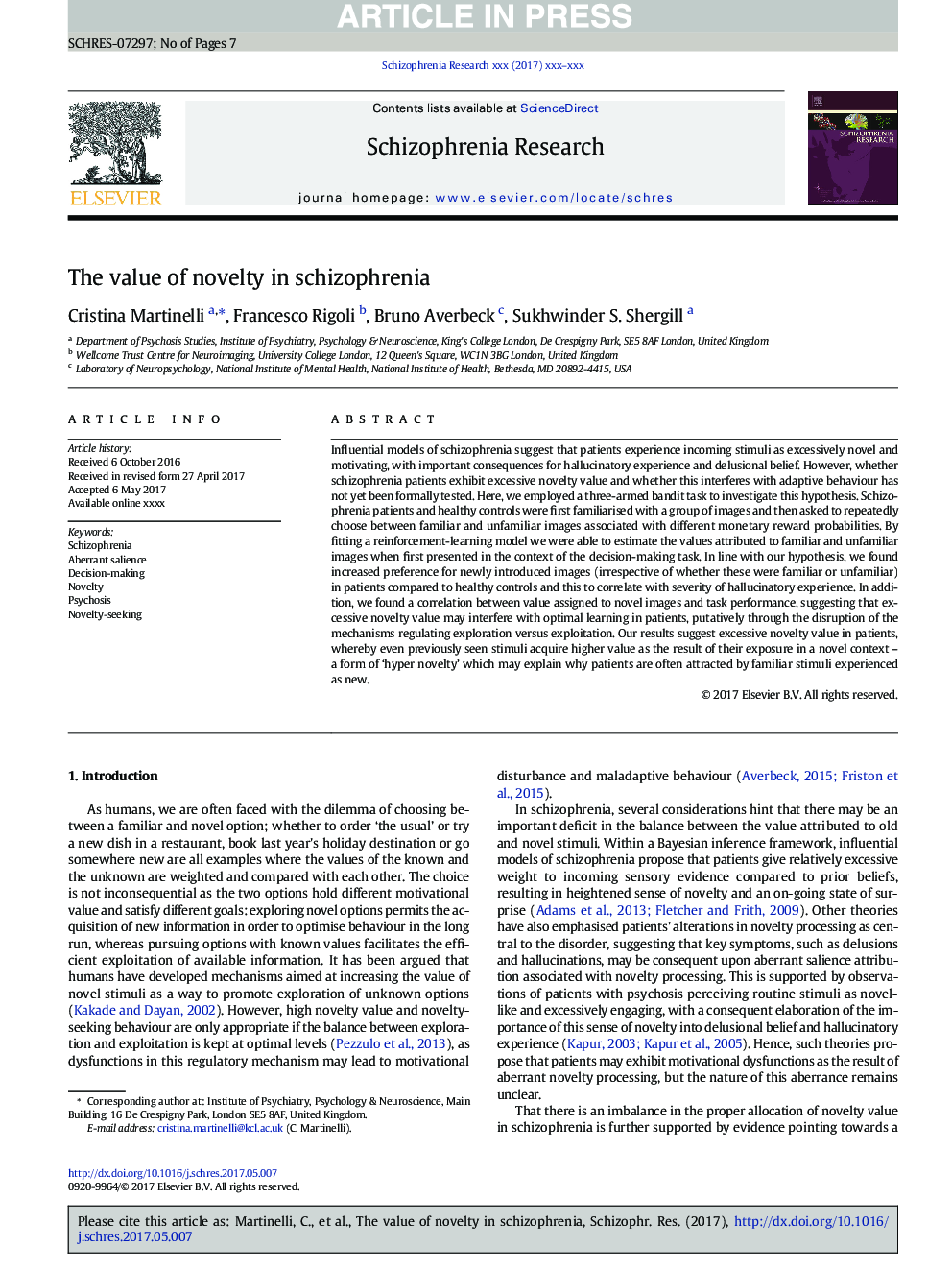| Article ID | Journal | Published Year | Pages | File Type |
|---|---|---|---|---|
| 6822102 | Schizophrenia Research | 2018 | 7 Pages |
Abstract
Influential models of schizophrenia suggest that patients experience incoming stimuli as excessively novel and motivating, with important consequences for hallucinatory experience and delusional belief. However, whether schizophrenia patients exhibit excessive novelty value and whether this interferes with adaptive behaviour has not yet been formally tested. Here, we employed a three-armed bandit task to investigate this hypothesis. Schizophrenia patients and healthy controls were first familiarised with a group of images and then asked to repeatedly choose between familiar and unfamiliar images associated with different monetary reward probabilities. By fitting a reinforcement-learning model we were able to estimate the values attributed to familiar and unfamiliar images when first presented in the context of the decision-making task. In line with our hypothesis, we found increased preference for newly introduced images (irrespective of whether these were familiar or unfamiliar) in patients compared to healthy controls and this to correlate with severity of hallucinatory experience. In addition, we found a correlation between value assigned to novel images and task performance, suggesting that excessive novelty value may interfere with optimal learning in patients, putatively through the disruption of the mechanisms regulating exploration versus exploitation. Our results suggest excessive novelty value in patients, whereby even previously seen stimuli acquire higher value as the result of their exposure in a novel context - a form of 'hyper novelty' which may explain why patients are often attracted by familiar stimuli experienced as new.
Related Topics
Life Sciences
Neuroscience
Behavioral Neuroscience
Authors
Cristina Martinelli, Francesco Rigoli, Bruno Averbeck, Sukhwinder S. Shergill,
